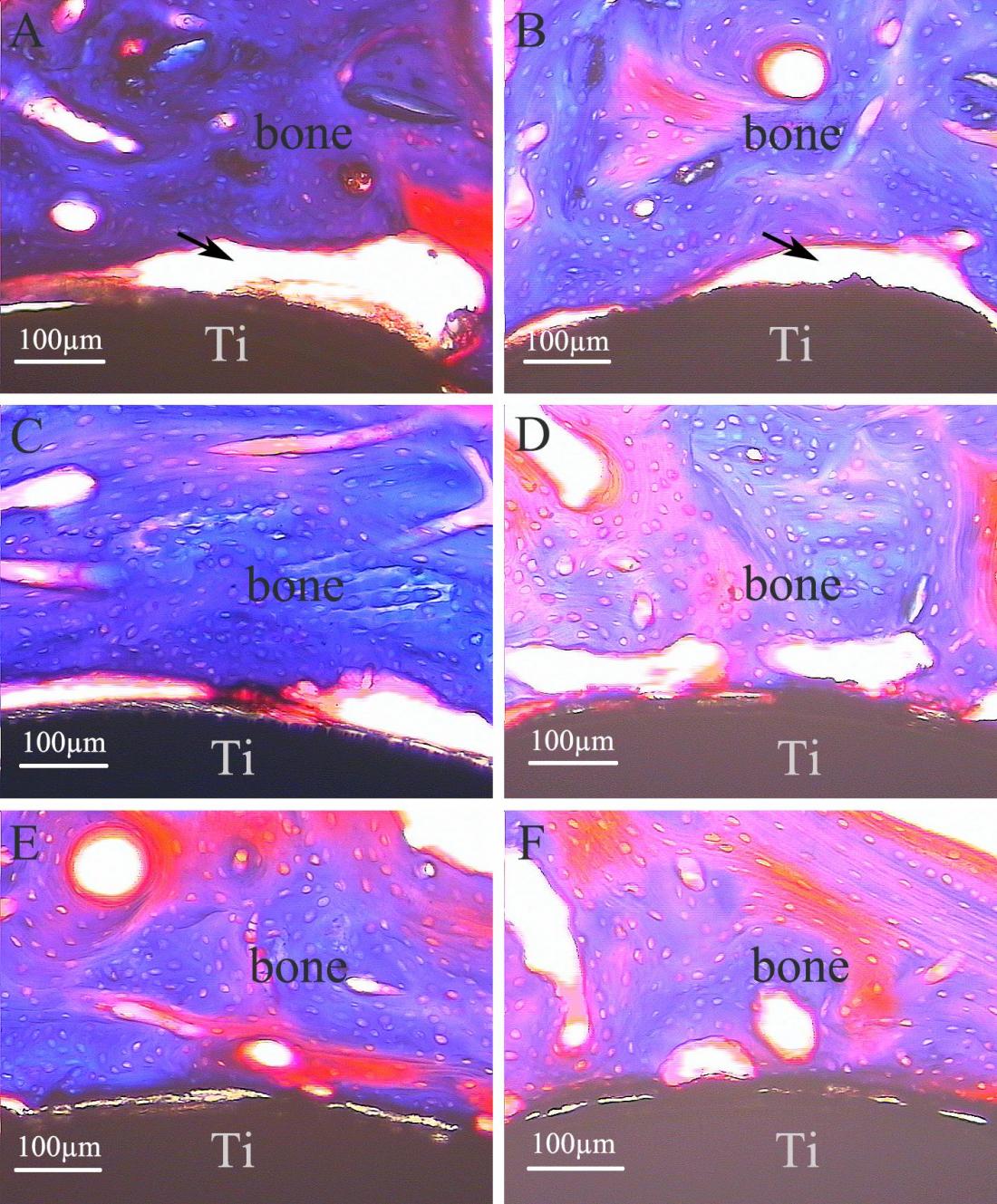Figure 1. Masson’s trichrome surface staining of bone-implant interface after implantation for 4 weeks (A, C, E) and 8 weeks (B, D, F) (n = 3). A, B: pure Ti; C, D: CaP/ Ti; E, F: CaP/gel/Ti.
Titanium (Ti) and its alloys are the most popular materials used in orthopedic implants because of their good mechanical and chemical properties, biocompatibility, corrosion resistance and low allergenicity. One drawback, however, is that they cannot bond directly to living bone, but need to be coated with bioactive materials to improve their integration.
Calcium phosphate (CaP) and collagen are the main constituents of natural bone, and therefore gelatin – a denatured form of collagen – has excellent biodegradability and biocompatibility properties. Many organic-inorganic composites combine the advantages of each component, hence a composite of CaP and gelatin may be an effective coating for Ti implants.
In a study published in the journal Science and Technology of Advanced Materials, researchers in Japan and China tested a novel urease fabrication process for coating titanium implants with bioactive CaP/gelatin composites.
In the study, Wei-Qi Yan and colleagues implanted tiny 2 mm by 10 mm CaP/gel/Ti and CaP/Ti rods into the thigh bone of rabbits, while pure Ti rods served as controls. Four and eight weeks following the operation, the authors observed much more new bone on the surface of the composite CaP/gel/Ti rods than in the other two groups. What's more, the CaP/gel/Ti rods bonded to the surrounding bone directly, with no intervening soft tissue layer.
The authors concluded that the CaP/gel/Ti implants fabricated using their urease process not only enhanced the proliferation of stem cells and differentiation of bone cells, but also the bone bonding ability of the implants. This research suggests that titanium implants coated with CaP and gelatin have great potential in clinical joint replacement or dental implants.
For more information about this research, please contact:
National Institute for Materials Science, Tsukuba, Japan
Email: [email protected]
Tel. +81-(0)29-859-2494



